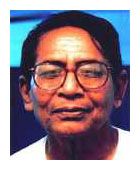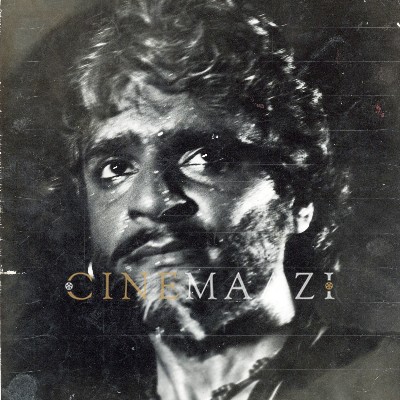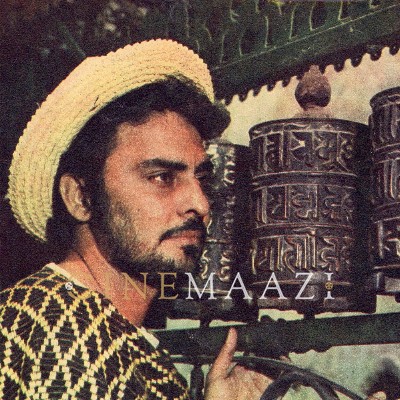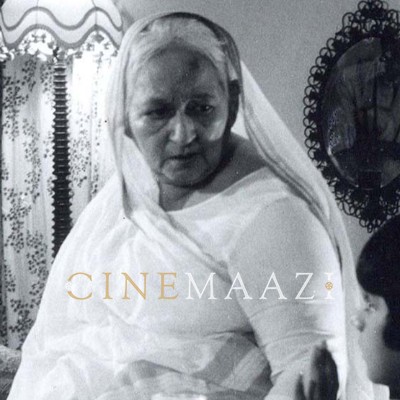Sujit Sen

Subscribe to read full article
This section is for paid subscribers only. Our subscription is only $37/- for one full year.
You get unlimited access to all paid section and features on the website with this subscription.
Not ready for a full subscription?
You can access this article for $2 , and have it saved to your account for one year.
- Died: 28 August 2005 (Mumbai)
- Primary Cinema: Hindi
Critically acclaimed writer and assistant director Sujit Sen is known for penning the screenplay of prominent and well-appreciated films such as Arth (1982), Saaransh (1984), Prahaar: The Final Attack (1991), Hum Hain Rahi Pyar Ke (1993), Gumrah (1993), and Gaddaar (1995). Exceedingly well read, he had written several Bengali novels. In fact, the way he wrote his screenplays were also apparently almost like a book. He also finds a key place in Nobel laureate Sir V S Naipaul’s A Million Mutinies.
Before he ventured into films as a screenplay writer, he worked as a chartered accountant in Kolkata. Moving to Mumbai during the Naxalite movement in West Bengal, he formed a creative group of screenwriters along with Javed Siddique, Aakash Khurana and Robin Bhatt.
He went on to make a name for himself with his penning of Mahesh Bhatt's powerful and sensitive films Arth (1982) and Saaransh (1984). Arth told the story of a filmmaker who is having an extra-marital affair with an actress and decides to leave his wife. The film, starring Shabana Azmi, Smita Patil and Kulbhushan Kharbanda, followed the journey of this women's search for her identity. The film was said to be inspired by director Mahesh Bhatt’s own life. Saaransh, which he penned next, was the story of old couple, who rent out a room after the recent death of the bread-earner of the family, their only son. A budding actress starts living with them, who is in love with a local politician's only son. The film follows the happenings that later ensue. It featured Anupam Kher, Rohini Hattangadi and Soni Razdan. These two films were Sen’s milestones as a solo writer.
He followed it up with the hard-hitting Prahaar: The Final Attack. Starring Nana Patekar, Dimple Kapadia, Madhuri Dixit, and Gautam Joglekar, the film is the story of Major Chavan, a tough and stern soldier, trained to destroy the enemy. However, when one of his commandos is killed, he sees the hidden reality, and makes his final attack on the enemy within the crumbling society.
Sen also wrote the superhits Hum Hain Rahi Pyaar Ke (1993), Gumraah (1993) and Aatish (1994). He also penned the popular television detective series C.A.T.S. (2001). He was known to joke about being a Bengali writing in English for Hindi films. He also reportedly penned Bengali novels.
Known to have worked closely with Mahesh Bhatt, their association was hit by a setback, and he had a fallout with the Bhatt camp. It is believed that he never quite recovered from this break. He is said to have also had troubled relations with his colleagues, and was reportedly unpaid for much of his work. Post his Bhatt phase, he became close to actor-filmmaker Anant Mahadevan and wrote all his films in the past seven-eight years, including his directorial debut 'Dil Vil Pyar Vyar' (2002) and his unreleased Aksar. Mahadevan feels Sen had lost hope at one time. “He felt when I came into his life he started writing again. I don't know whether I motivated him. I just believed in him again when he was abandoned by his friends. He often said he wouldn't work just for money.”
Sen was also plagued by ill-health and was said to be obsessed with death. This fascination saw him delve into the subject in many of his scripts. It also resulted in poignant and complicated films such as Saaransh.
The Anant Mahadevan directorial Staying Alive (2012) was also penned by Sen, and was inspired by his own real life hospital experience. It revolved around a newspaper sub-editor, Aditya (Ananth Mahadevan) who suffers his third heart attack and finds himself in the ICU of a hospital. On the bed next to him is Shaukat Ali (Saurabh Shukla), a gangster who has suffered his first heart attack. While Aditya scoffs at death, Ali is terrified of dying. The film is his journey of realising death is inevitable and the greatest feeling is to simply be alive.
Sen’s detailed diary became the source of Anant Mahadevan’s next film Life’s Good (2012). It is inspired by the writer’s life experiences, noted in his personal diary, which was handed over to the filmmaker after Sen’s death in 2005. Mahadevan revealed that he had met Sen a few weeks before his death, when he had just finished Staying Alive and was planning to move to something else. He showed him a diary in which he had noted many of his life-changing experiences. One of them was about how his little niece inspired and motivated him to live and how he developed a deep and enduring friendship with her. The diary was handed over to Mahadevan by Sen’s brother-in-law Pulakesh Bhowmick. The biopic based on Sen’s life featured Jackie Shroff, Saniya Anklesaria, and Rajit Kapoor in key roles.
In real life too, Sen was very close to his niece and she was the one who gave his life new meaning. He was said to be well-loved by all the children in the family, and was very friendly with all of them. However, he experienced professional frustration as many of his scripts were not getting filmed.
Anant Mahadevan maintains that there are no writers of Sen’s stature. He brought immense substance and values to writing, while today, technique has taken over screenwriting, leading to a drought of real actors. It was apparently also very difficult to adapt Sen’s lucid lines, and the Hindi translations appeared weak in comparison.
Sujit Sen passed away unsung on 28 August 2005 in Mumbai. Anant Mahadevan remembers him as a father figure. “His creativity and optimism always served as an antidote to the excesses of Bollywood.”
References
https://timesofindia.indiatimes.com/entertainment/hindi/bollywood/news/saaransh-writers-tragic-life-on-reel/articleshow/10790492.cms
https://timesofindia.indiatimes.com/entertainment/hindi/bollywood/news/ananat-mahdevan-pays-tribute-to-sujit-sen/articleshow/11724112.cms
https://www.imdb.com/name/nm0784044/
Image courtesy: https://www.cinestaan.com/people/sujit-sen-12131











.jpg)



